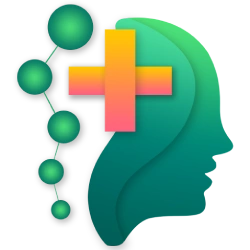Bipolar disorder treatment in Borivali
Bipolar Disorder
Bipolar disorder, also known as manic depression, is a neurological condition marked by fluctuations in energy, mood, and daily functioning. These mood shifts include episodes of mania or hypomania and periods of depression. Recent research indicates that bipolar disorder affects a significant portion of the Indian population, ranging from 0.5 to 21 per 1000 individuals annually, with a higher prevalence among those aged 20 to 30 years. Alarmingly, studies show that 70% of individuals with bipolar disorder remain untreated, highlighting the importance of awareness and access to proper care.
What are the causes and symptoms of bipolar disorder?
Causes of Bipolar Disorder:
- Genetic factors: Bipolar disorder tends to run in families, indicating a genetic predisposition.
- Neurochemical imbalance: Imbalances in neurotransmitters, such as dopamine and serotonin, are associated with bipolar disorder.
- Environmental factors: Stressful life events, trauma, or substance abuse can trigger or exacerbate symptoms of bipolar disorder.
- Brain structure and function: Changes in the structure and function of certain brain regions may contribute to the development of bipolar disorder.
Symptoms of Bipolar Disorder:
- Manic/Hypomanic Episodes: Elevated mood, increased energy, impulsivity, racing thoughts, inflated self-esteem, decreased need for sleep, and engaging in risky behaviors.
- Depressive Episodes: Persistent sadness, loss of interest or pleasure in activities, changes in appetite or weight, fatigue, feelings of worthlessness or guilt, difficulty concentrating, and thoughts of death or suicide.
- Mixed Episodes: Simultaneous occurrence of manic and depressive symptoms, such as agitation, irritability, and mood instability.
- Cyclothymic Symptoms: Chronic mood instability characterized by numerous periods of hypomanic and depressive symptoms that do not meet the criteria for full-blown episodes.
- Psychotic Symptoms: Hallucinations, delusions, or impaired reality testing may occur during severe manic or depressive episodes.
What are the complications if bipolar disorder is left untreated?
- Substance Abuse Issues: Individuals may turn to alcohol or drugs as a way to cope with their mood swings, exacerbating their condition and leading to further health complications.
- Increased Risk of Suicidal Behavior: Without proper treatment, the risk of suicide attempts and completed suicides is significantly higher among individuals with bipolar disorder.
- Financial and Legal Difficulties: Impulsive behavior during manic episodes can lead to reckless spending, legal troubles, or other financial difficulties, exacerbating stress and instability.
- Strained Relationships: Erratic mood swings and unpredictable behavior can strain relationships with family members, friends, and colleagues, leading to social isolation and loneliness.
- Impaired Functioning: Bipolar disorder can interfere with daily functioning, impacting performance at school, work, or other responsibilities, and hindering personal and professional growth.
What are the treatment options for bipolar disorder?
Cognitive Behavioral Therapy (CBT): A psychotherapy approach that helps individuals change negative thought patterns and behaviors associated with bipolar disorder, promoting coping strategies for managing mood episodes.
Family-Focused Therapy: Involves family members in treatment to improve communication, reduce conflict, and provide support to the individual with bipolar disorder, fostering a supportive environment for recovery.
Interpersonal and Social Rhythm Therapy: Focuses on stabilizing daily routines, sleep patterns, and social rhythms to manage bipolar symptoms effectively, enhancing overall stability and functioning.
Electroconvulsive Therapy (ECT): A medical treatment involving controlled seizures induced by electrical currents to alleviate severe symptoms of bipolar disorder, particularly when other treatments have not been effective.
Dr. Nishtha Dalwani is a highly esteemed Psychiatrist and Psychotherapist based in Mumbai, known for her exceptional expertise and compassionate care in the field of mental health. With over 22 years of experience, Dr. Dalwani has established herself as a leading professional in providing psychiatric services and therapy to her patients. Specializing in the treatment of bipolar disorder, Dr. Dalwani offers expert guidance and compassionate care to individuals struggling with this condition. Schedule your consultation today for better mental health and stability.

